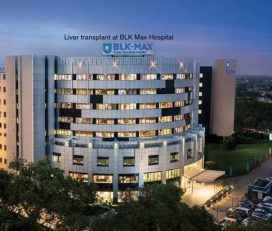The Journey
Mr. Johnson’s journey from Nigeria to India was not an easy one, but it was worth it in the end. He had to undergo several tests and evaluations to determine his eligibility for the transplant. Once he was cleared, he was put on a waiting list, and after a few weeks, he received a call that a liver was available.
Pre-Transplant Preparation
Before traveling to India, the patient had to undergo a series of medical tests to determine their eligibility for transplantation. This included a series of blood tests, X-rays, and other diagnostic procedures. Financial arrangements were also made, including arranging for travel and accommodation in India. The visa process was also a key part of the pre-transplant preparation, as the patient had to apply for a medical visa to enter India for their treatment.
Arrival in India
The patient’s journey to India was a long and challenging process. After arriving in India, they were taken to the hospital where they would receive their transplant. The patient was immediately taken into the care of the transplant team, who assessed their condition and prepared them for surgery. The patient had to adjust to a new environment, which was made easier by the support of the hospital staff and the patient’s family.
Transplant process
The next step was to undergo a series of tests to determine if he was a suitable candidate for the transplant. These tests included blood tests, a liver biopsy, a heart and lung evaluation, and a psychological evaluation. After all the tests were completed, the results were evaluated and it was determined that Mr. Johnson was a good candidate for the transplant.
The transplant surgery was scheduled, and Mr. Johnson was admitted to the hospital. The surgery lasted approximately 8 hours and was performed by a team of experienced surgeons. The donor liver was carefully removed and carefully transplanted into Mr. Johnson’s body. The surgery was successful, and Mr. Johnson was placed in the intensive care unit for close monitoring.
Post-operative care and recovery
After the transplant, Mr. Johnson was taken to the intensive care unit (ICU) where he was closely monitored. He was given pain medication and antibiotics to prevent any infections. He was also put on a special diet to help his body adjust to the new liver.
Over the next few days, Mr. Johnson’s condition improved, and he was gradually moved out of the ICU. He was encouraged to move around and do light exercises to help with his recovery. He was also given regular check-ups and tests to monitor his liver function and the success of the transplant.
Follow-up care
Once Mr. Johnson was discharged from the hospital, he was advised to come back for regular check-ups and follow-up appointments. These appointments included blood tests, liver function tests, and other evaluations to monitor the success of the transplant.
Mr. Johnson was also put on a long-term medication regimen to help prevent rejection of the new liver and to keep it functioning properly. He was advised to make significant lifestyle changes, such as avoiding alcohol, eating a healthy diet, and exercising regularly, to maintain a healthy liver.
Return to Nigeria
Before leaving India, Mr. Johnson was given a comprehensive medical check-up to ensure that he was fit to travel. To ensure a smooth transition back to Nigeria, Mr. Johnson’s medical team in India worked closely with his doctors in Nigeria to transfer his medical records and ensure that he received the necessary follow-up care.











